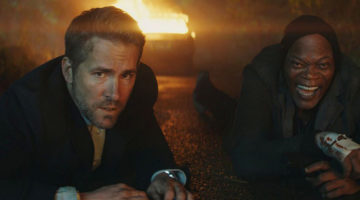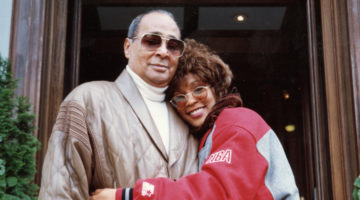Review: The Birth of a Nation
The movie that has been perhaps the most controversial of 2016 must be analyzed on just that–its effectiveness as a movie. On this count, Nate Parker’s film is a game-changer. It’s not so much of a film as it is a invocation to action, to respond to injustices both then and especially of now. And even though the symbolism is a little heavy, with frequent references to Nat Turner as “the chosen one” and repeated mentions of going “on to Jerusalem”, (Virginia), the film makes its point, and makes it clear: in times of war, the only way to meet injustice is with the great equalizer: head-on violence.
What makes this notion so uncomfortable in Parker’s retelling of Nat Turner’s slave rebellion is that Turner is perhaps reinterpreted as a vigilante, a mercenary, responding to a specific type of injustice. Yes, the impetus is in large part a response to Turner’s wife Cherry (Aja Naomi King) being sexually assaulted by a group of men led by a lawless officer played by Jackie Earle Haley (this takes place off screen). However, a large measure of the injustice being addressed is Turner bearing witness to an older slave refusing to eat, and calmly getting his teeth knocked out and the food forced down his throat. In a sense, Parker seems to suggest that this image is worthy, in that it is shown and in extremely graphic detail. The bolus of food that is choked down covered by the blood from the gaping mouth wound is the vision that haunts the mind of Turner. To suggest otherwise is to defeat the narrative that Parker has created–unfair treatment leads to violent rebellion.
The significance given to Turner being a man of the Lord, a preacher, is made very clear in his subtle transformation. Essentially, The Birth of a Nation is a cohesive whole broken down to two parts: Turner’s formative years, but more of a deconstruction than anything. Turner is a man of faith, but when he uses that faith, when his anger (which has been more of a slow boil) becomes righteous anger, the film’s second half diminishes the impact of its first. Once the first head is ripped from the body, when an early scene is repeated with a different meaning, the film becomes an exercise in bloodletting. It’s the effect becoming too removed from the cause. Something in Turner snaps and rather than becoming unhappy with the very notion of slavery at its very essence, he is fighting injustice portrayed both onscreen and off. His vigilante justice is a certain response that steps around the root cause (an early scene of Turner and his master Samuel Turner as guileless children is not repeated in the second half), moving beyond the subtext which is at the heart of the film: the notion of separate but equal becoming subverted. Parker revels in a world that remains separate but unequal by underwriting almost every single female character and making the violence a boys-only exercise even if it’s inspired by female dehumanization. The war rages on.
[star v=3]






